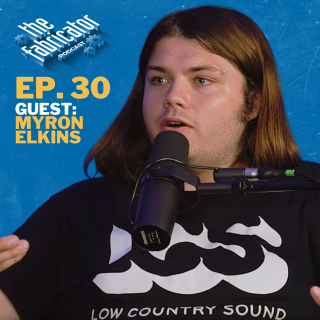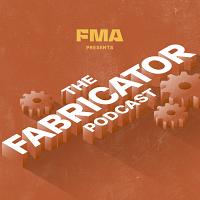Myron Elkins: From Michigan factory welder to Nashville recording artist
Myron Elkins joins The Fabricator Podcast to talk about his journey of being a factory welder from small-town Otsego, Mich., to becoming an touring Americana recording artist backed by Nashville producer Dave Cobb and Elektra Records.
From ages 17 to 21, Elkins made his way through a vocational welding program at Allegan Area ESA Tech Center in rural Western Michigan and worked as a welder for Landscape Forms, fabricating high-end outdoor furniture. Also during that time, Elkins also developed his love and understanding of music. He found himself listening to a mix of classic rock, including Motown, southern rock, blues, country, and alt-country while working in the fab shop. That led him to writing more songs and overcoming his performance anxiety by playing small venues between Kalamazoo and Grand Rapids.
Then Elkins got the Music City bug. He played a few small gigs in Nashville, signed a manager, and cut a five-song EP called "Just Another Asshole With a Guitar." It caught the attention of Cobb, who has worked with the likes of Brandi Carlile, Chris Stapleton, Jason Isbell, and the late John Prine. Cobb signed Elkins to a five-album deal on his Low Country Sounds label, an imprint of Elektra, and produced Elkins' first full-length album, "Factories, Farms & Amphetamines."
At the top, the guys talk about other musicians from Michigan, some of their favorite Bob Seeger songs, Jack White's Nashville connection, and whether or not Kid Rock is still mad at Bud Light.
Email us at podcast@thefabricator.com with any comments, questions, or suggestions.
In This Episode
Register for FABTECH 2023.
Learn more about FMA's Coil Processing Workshop and Tours
Learn more about Myron Elkins and his upcoming tour dates.
TRANSCRIPT
Myron Elkins: We got five records with Elektra and Dave.
Lincoln Brunner: Did you put two-weeks notice in with the welding place?
Myron Elkins: Oh, yeah.
Gareth Sleger: Or have you actually quit, or is it just on hold?
Myron Elkins: I'm still in contact with my boss, and a lot of the people that work there. It was just kind of one of those things, everybody laughed. They'd be like, "Are you kidding? It worked? It worked?"
Dan Davis: Yeah, it is like a lottery situation.
Myron Elkins: Yeah, it's like, "Oh wow, it worked."
Sara Spring: FMA's Coil Processing Workshop heads to Toledo. During this two-day workshop, you'll connect with industry colleagues and gain insight into your toughest processing challenges. The small group setting includes facility tours for you to see equipment in action and discover new solutions for cutting, slitting, leveling, safety, and more. For more information and to register online, please visit fmamfg.org.
Dan Davis: Hello, this is Dan Davis from the Fabricator Magazine.
Lincoln Brunner: And Lincoln Brunner.
Dan Davis: From The Fabricator Magazine, the Tube & Pipe Journal. And we have a good episode today. Myron Elkin, Elektra/Low Country Sound recording artist.
Gareth Sleger: Myron Elkins.
Dan Davis: Myron Elkins. I said that, I'm pretty sure I said that.
Gareth Sleger: Cut off the S.
Lincoln Brunner: One of the few country musicians from Michigan.
Gareth Sleger: Americana.
Dan Davis: He says Americana.
Gareth Sleger: Yeah.
Dan Davis: Yeah. So-
Lincoln Brunner: Just trying to-
Dan Davis: Good conversation. He started out his work life as a welder.
Lincoln Brunner: That's my-
Dan Davis: We'll talk about that. We were talking about Michigan. And we decided it would be kind of interesting to talk about Michigan music, if we have any favorites from there.
Lincoln Brunner: Michigan music?
Dan Davis: So we had a little bit of conversation about Motown, Bob Seger.
Gareth Sleger: What's your favorite Seger song?
Dan Davis: Man, I don't want to say old time rock and roll, but have you ever been to a wedding where that wasn't played?
Lincoln Brunner: No.
Dan Davis: Like kind of equate, a happy moment with that song.
Lincoln Brunner: The song Her Strut is hard not to rock out to.
Gareth Sleger: The opening drum sequence in that song is really good.
Lincoln Brunner: Yeah. Well, that guitar lick-
Gareth Sleger: I was listening to it last night-
Lincoln Brunner: Oh, were you?
Gareth Sleger: ... on the way back from Cincinnati.
Lincoln Brunner: That guitar lick, that opening guitar lick is just-
Dan Davis: Yeah. So what else are we talking about? Main Street? How deep can we go in the catalog?
Gareth Sleger: I don't know, whatever your favorite is.
Dan Davis: No. I think I'm saying out loud that I need help fleshing out what else I could consider enjoyable.
Gareth Sleger: Well, I heard Rambling Gambling Man. I didn't realize that was Bob Seger. That's such a good song.
Dan Davis: Katmandu?
Lincoln Brunner: Yes-
Dan Davis: Is that his?
Lincoln Brunner: It's his.
Gareth Sleger: I don't know, maybe?
Dan Davis: Yeah, yeah, yeah. What else we got?
Lincoln Brunner: Well, Hollywood Hills.
Dan Davis: Hollywood Nights.
Lincoln Brunner: Hollywood Nights, sorry.
Gareth Sleger: That was-
Dan Davis: Oh, sure. Yeah.
Gareth Sleger: We're just going to start naming Seger songs?
Dan Davis: I'm about tapped out.
Gareth Sleger: Turn the Page.
Dan Davis: Turn the Page is a good song.
Gareth Sleger: Like a Rock.That was Chevy's theme song for two decades.
Lincoln Brunner: I'm more of a Motown guy myself, but Bob Seger's not so bad.
Dan Davis: Yeah, I don't know. May I say Jack White?
Gareth Sleger: Yeah, he's a-
Dan Davis: Is that a suitable choice?
Gareth Sleger: Is very suitable I think.
Lincoln Brunner: You shaking?
Gareth Sleger: You set up a Nashville too, just like Myron.
Lincoln Brunner: Jack White can set up anymore.
Dan Davis: What's his name? Bob. The Long Hair Wears the Fedoras. Bob, what's the name? Man.
Lincoln Brunner: I don't know.
Gareth Sleger: I don't even know how to Google that. Bob Fedora?
Lincoln Brunner: Bob with the fedora.
Dan Davis: He shoots up Bud Light with machine guns.
Gareth Sleger: Oh, you talking about Kid Rock?
Dan Davis: No, it was Bob, he prefers to be called Bob now.
Gareth Sleger: I literally Googled Bob Fedora Michigan before I knew you were talking about Kid Rock.
Dan Davis: Alright.
Lincoln Brunner: Oh, sliding backwards fast.
Dan Davis: Yes.
Lincoln Brunner: And you know what? That's good enough.
Gareth Sleger: Yeah, okay, that's fine. This was a really good conversation, so we should just get to it. We'll probably lock this one away for future generations to discover. Anyway, you'll enjoy this conversation with Myron Elkins, as I said originally in this beginning of this introduction and enjoy. Thank you.
Sara Spring: FABTECH, North America's largest metal forming, fabricating, welding, and finishing event is back in Chicago this September 11th through the 14th. See the latest technology, gain insights from industry leaders and discover strategies to grow your business. Register for free today at fabtechexpo.com. And now back to the episode.
Dan Davis: We got a really good guest today. Myron Elkins is our first official guest with a recording contract.
Lincoln Brunner: Yeah.
Dan Davis: The closest we come is a prior guest who was in a sky band in the eighth grade, so we're moving up the charts ourselves.
Lincoln Brunner: Way up the charts.
Gareth Sleger: Dabs Wellington.
Dan Davis: That's what I said, I thought it was kind of interesting. Shout out to Dabs Wellington. We're going to chat about what he's doing in the recording industry, but that's going to come later because one of the reasons we invited him here today because he has a background in welding of all things. And we'll find out about that. And a little bit more maybe how that influences what he's doing today. So thanks for joining us today Myron.
Myron Elkins: Thank you, thank you for having me. This is being recorded, right?
Dan Davis: This is official.
Lincoln Brunner: You are official now.
Myron Elkins: This is the new studio?
Dan Davis: This is it, we are-
Lincoln Brunner: It's not as official as some of the studios you've been in, but we're doing our best.
Myron Elkins: It's great, it's way more legit than I thought honestly. I didn't know much about-
Lincoln Brunner: We aim to please.
Gareth Sleger: We hear that every single time.
Myron Elkins: Yeah, no offense-
Lincoln Brunner: No, none taken, especially now.
Dan Davis: I think people have second thoughts sometimes before they show up, but we get that-
Gareth Sleger: Yeah, I didn't trust it until their van rolled up.
Myron Elkins: Yeah, we're like wow. I thought maybe you guys, I don't even know.
Dan Davis: I assume most people think we're just going to do it from inside a rundown motel room or something like that.
Myron Elkins: Well, I thought maybe you rented a space, maybe-
Dan Davis: Oh, I got you. I got you. Only the finest hotels for our production.
Myron Elkins: Nice.
Lincoln Brunner: Super [inaudible].
Dan Davis: Myron, give our listening audience an idea of where you came from and a little bit about your background.
Myron Elkins: Well, I'm from Kalamazoo, Michigan, or just north, called at Otsego, it's a paper mill town. I guess it'd be pretty blue collar, my dad was a bus driver for Indian Trails for a long time, and Cardinal. My mom, she worked at a nursing home, my two grandparents who lived right across the street, they both spent their whole life in a factory doing plastics and just odds and ends, nothing really trait oriented, it was more just pushing buttons and putting in the time. I grew up with country music mostly. And then as I got older, I would turn on the oldie station and that's where I found soul and rock and roll and blues. And I wasn't very good in school, none of my parents finished school. We were kind of... I don't know what you'd call it, it was just very, very ordinary I would say, kind of middle class, nothing worth bragging about.
Lincoln Brunner: Very typical, grown up-
Myron Elkins: Yeah typical, there you go. So yeah, at probably around 15 years old, I didn't have much direction. I was failing in school for the most part. And I did gone on growing up, I think I have this thing where if I'm not super interested in something, I can't almost force myself to get interested. Does that make sense? It's always bugged me because some things in life, you got to do it. You might not want to, but you got to do it. And for me, that's always been real hard. And thankfully I went to kind of a rural school, I guess, and they offered a vocational tech center. And they drove us out there. And especially people like us, our kids like us, they're probably like, "Oh, look here. You can work on cars or you can tackle people and be a cop or something." Then they had computers. And I loved old cars, Mopars and them... Just everything really. And I don't know, that's been obsession within my family. We never really owned anything too special, my grandpa's got a 38 master deluxe, an old Chevy-
Dan Davis: Oh wow.
Myron Elkins: That was kind of cool. I had suicide doors-
Dan Davis: Yeah.
Lincoln Brunner: Oh, yeah.
Myron Elkins: But we mostly just talked about it because we didn't really have the money to have hot rods. And I always loved the colors of those old cars and the body lines. And when I was looking at welding, stuff started kind of clicking, started turning on, I'm like, "Man, I could get me a car and I could fix it up, which I never did."
Dan Davis: I don't know-
Myron Elkins: But I could.
Dan Davis: Yeah, yeah.
Myron Elkins: But I could if I wanted to-
Lincoln Brunner: That's right.
Myron Elkins: I ended up signing up for the welding program. And for the first time in my, I guess, school career, I was the best student-
Lincoln Brunner: Cool.
Myron Elkins: Perfect attendance for two years straight.
Dan Davis: That's awesome.
Lincoln Brunner: That's great.
Myron Elkins: I got student of the year-
Lincoln Brunner: Got to feel good. And I had a connection with the instructor. Never had really a connection with very many school teachers ever.
Gareth Sleger: What was the name of that program?
Myron Elkins: Allergan Tech Center. We were in Allergan County. So all the schools from that county could come there and they had nursing and all kinds of great stuff. Most of the time when we talk about the system, whatever that may be, that broad statement, I've never seen it work, I've just always been kind of glass half empty with that stuff. But with that thing I can say vocational tech centers work and I've seen it with my own eyes and it worked for me. So from there, the instructor, Rich Curry, who's now retired, but he worked there for a long time and just a great person with a real kind of expectation for students coming in there. He would hook you up with jobs, he just had a great take on what that program was. He would be a great guy to have in here, honestly. Rich Curry, the things he's done for that community, honestly, to kind of take lost students and kids and show them that a trait job isn't just for worn out rednecks, which that's what we were kind of taught in school, you go to college. If you don't go to college, then you're-
Dan Davis: On your own mode.
Lincoln Brunner: Second class.
Myron Elkins: Yeah, vanned by the river stuff.
Lincoln Brunner: Yeah. But The Rich Curry's of the world is the kind of people who give people hope and direction, right?
Myron Elkins: And the funny part of it, he would chuckle at the college kids, because he's like, "They're going to spend a lot of money and you're going to go to work and make a lot of money really fast." And there's this thing called the union and you got to get into the union and do it right. He hooked me up with a job right out of high school. Actually in high school, I was doing a program where I would go to school for half the day and then shoot right off to landscape forms where I ended up working.
Lincoln Brunner: Welding?
Myron Elkins: Welding, yes. Making good money, honestly, right in school.
Lincoln Brunner: Wow.
Dan Davis: What type of welding was it?
Myron Elkins: Well, I started off doing MIG, just mild steel MIG. And then I ended up doing quite a few things there, finishing, so grinding and using the DA sander.
Dan Davis: Yeah.
Lincoln Brunner: Sure.
Myron Elkins: We were doing high-end outdoor furniture for cruise ships and parks. And the stuff was expensive, we even had a wood shop on site.
Lincoln Brunner: Oh, wow.
Myron Elkins: So some of that stuff would be steel frame and then wood to go in it and stuff.
Lincoln Brunner: You do any stainless, things like that?
Myron Elkins: Yep, yep. Eventually I got to stainless. I started doing stainless TIG and kind of an oddball thing I was doing there. And it was just for a single part, was MIG aluminum.
Lincoln Brunner: Okay.
Dan Davis: Wow.
Myron Elkins: So that was kind of fun.
Lincoln Brunner: That's not easy.
Myron Elkins: No, we were doing it very fast and hot.
Lincoln Brunner: Wow.
Dan Davis: Oh wow.
Myron Elkins: So you were almost just blowing aluminum at this thing. It was two pieces and you'd put it inside a fixture and you would just blow aluminum, kind of just lay it right in between there. And it didn't necessarily look pretty. But for that I guess system, that's what they found fit. But I was also doing TIG aluminum as well.
Lincoln Brunner: Oh wow.
Myron Elkins: And on one chair we would do multiple passes of tick aluminum, it wouldn't look pretty. And then you would finish it out and just kind of make it-
Dan Davis: Blend it in?
Myron Elkins: ... blush and blend it in.
Lincoln Brunner: Yeah. How long were you doing that?
Myron Elkins: From 17 years old to 20.
Lincoln Brunner: Okay.
Dan Davis: No kidding.
Myron Elkins: So I was there from probably 2016, roughly, to 2021, the winter of-
Dan Davis: I'll just say that I feel like I should do a more formal introduction. So Myron actually has an album. He's wearing a shirt of his record label, Electro/Low Country Sound. And his latest album is Factories, Farms and Amphetamines-
Myron Elkins: Yeah, it is.
Dan Davis: ... which I'm sure we'll get to that as well. But obviously this kind of impacted a lot of what's now out there for the public to consume in terms of your music. At the time, where was your head with music as you're doing this welding?
Myron Elkins: Very realist.
Dan Davis: Yeah.
Myron Elkins: Like the Midwest thing. And most of my musical heroes are either from the South or from the West.
Lincoln Brunner: Can you name a couple?
Myron Elkins: Ray Charles, James Brown, Ry Cooder, Al Green.
Lincoln Brunner: Wow.
Myron Elkins: Wilson Pickett, CCR, the band. The band's actually from Canada, which is kind of crazy.
Dan Davis: Okay.
Myron Elkins: But most of them were from the South and-
Dan Davis: The band's from South Canada?
Myron Elkins: Yeah, yeah, there you go.
Lincoln Brunner: No one's from North Canada.
Myron Elkins: The singer of the band and the material of the band is from the South. So Levon Helm, the singer-
Dan Davis: Okay, yeah.
Myron Elkins: Well, one of the singers and the drummer was from Arkansas.
Dan Davis: Okay.
Lincoln Brunner: Oh, wow. Okay.
Myron Elkins: And the material that was being written about, the Night They Drove Old Dixie Down-
Lincoln Brunner: That's a crazy song.
Myron Elkins: ... or Rag Mama Rag, that comes from New Orleans. But most of my musical heroes were coming from the South. And they would, I feel like maybe a little bit more ingrained in country music and blues music. The time I was coming up in the Midwest music was something I would say was there and not approachable.
Lincoln Brunner: What do you mean by that?
Myron Elkins: It just didn't feel like a real thing to go after, especially in my family.
Lincoln Brunner: Okay.
Myron Elkins: We would play all the time at the kitchen table and the campfire, which was fun, that's still my favorite place to write or sing because there's no pressure, you're just having fun. But you don't go after it as a job that's-
Lincoln Brunner: That's for other people.
Gareth Sleger: Was your family musical, your parents play?
Myron Elkins: My parents didn't play, but my grandpa did, and he was very into country music, pretty much all of it, Red Soul Vine, you guys know him?
Dan Davis: No.
Lincoln Brunner: No.
Myron Elkins: He's kind of the story guy. A Phantom 309 or Teddy Bears, he's trucker songs.
Lincoln Brunner: Okay.
Myron Elkins: Conway Twitty, George Jones-
Dan Davis: Yeah, right.
Lincoln Brunner: Sure.
Myron Elkins: All of that stuff. And my cousin would come around and he'd play, and my uncle played electric rock guitar. And so yeah, it was always just a hobby and it was fun, but like I said, nobody in my family ever did bands really. And it was just looked at as a... It was a hobby, you don't go after it for job because you have kids and you buy a house, which is all fantastic, I love that stuff. But I got a little bit obsessed with it at some point and I just had to go for it.
Dan Davis: What came first, the obsession or the entry into that battle of the bands, that kind of-
Myron Elkins: So what happened is I started looking at people like Elvis Presley and Johnny Cash as these people who were just six foot tall and bulletproof. I'm talking stars-
Lincoln Brunner: So it would seem.
Myron Elkins: Yeah, yeah, exactly. And I was very just intrigued and that Walk The Line movie came out. As a kid, I was sitting there, I'm like, "Man, I want to be Johnny Cash when I grow up." And I was a huge Elvis Presley fan, which is funny because he's gotten so much, I get stuff for being an Elvis fan because people see him as the white guy who stole everything, which you can think what you want. But for me as a kid, just him as a performer was just, man, he's special. And like I said, I built these guys up in my head to be everything. And it hurt me when I went to go play music, especially performing live because I've given myself terrible anxiety, not stage fright, because I think in my head, I got all this pressure trying to-
Lincoln Brunner: Trying to live up to them?
Myron Elkins: Yeah, kind of live up to that. You're going out there, and I could be playing in front of three senior citizens. And I'll build it up in my head, "This is a performance, man." I held a big standard and my standard was you got to be Elvis Presley or go back to grandpa's house.
Dan Davis: When no one's really Elvis Presley-
Lincoln Brunner: No one's Elvis, right, exactly.
Myron Elkins: Yeah, yeah. So that's where the obsession started was with those, I guess, '50s rockers, rockabilly guys, just because they came from such a crazy time that I can't wrap my head around. And rock and roll is so fresh and new and they were so famous and all the... What would you call that? I guess more shallow things in music.
Lincoln Brunner: Oh yeah, for sure.
Myron Elkins: Then that just stayed with me my whole life pretty much. I'd play country music, just covering songs.
Lincoln Brunner: Were you doing any writing at this time?
Myron Elkins: Not much. I wrote a song about my parents, how they should stop smoking cigarettes when I was little.
Lincoln Brunner: Okay, what'd you call that one?
Myron Elkins: Smoking My Life Away. I remember it a little bit, I remembered a little bit.
Lincoln Brunner: Okay. Maybe lay that down someday.
Myron Elkins: Yeah, yeah.
Dan Davis: A parody song for one of those Kenny Loggins.
Myron Elkins: Yeah. And then when I got into probably freshman year, I started just dabbling in writing. And when you start writing, you start writing terrible songs. And I still do, most of the songs you write are just awful.
Lincoln Brunner: It's in the story writing kind of thing.
Myron Elkins: I just wouldn't see the light of day. And then just somewhere along the line, somebody would ask you, "You write?" And you're like, "I do." And then sing a song and it's over with. It's three minutes and you're done. If it was more than three minutes, then it's going to suck anyway most of the time. You know what I mean?
Dan Davis: Yeah.
Myron Elkins: Unless you're Don McLean or somebody.
Dan Davis: So what do you consider your big break in terms of catching someone's attention? When did that happen? Because you'd been singing around Western Michigan, I would imagine.
Myron Elkins: And you just really, you're running in a place like that, as bad as that sounds.
Lincoln Brunner: It's kind of a backwater, be honest.
Myron Elkins: Yeah, wait, what you say?
Lincoln Brunner: It's kind of a backwater if you're honest, it's out in the country.
Myron Elkins: Yeah, yeah. There's-
Lincoln Brunner: As long as we're being-
Dan Davis: Hello.
Lincoln Brunner: It's only 90 miles from Grand Rapids.
Myron Elkins: Well, Grand Rapids is a great, it has a scene, but also for, I guess a more national touring act-
Dan Davis: Correct.
Myron Elkins: It's a spot where you stop and play and then you head back to the place like LA, Nashville, New York, whatever.
Dan Davis: Right.
Lincoln Brunner: He's tracking with me-
Gareth Sleger: I'll just sit this one out.
Myron Elkins: It is very running in place a little bit. Even the bigger cities now are kind like, man, I guess Music City USA would be Nashville, but really it's the phone at this point. If you get big on the phone, you made it. So most people my age are just spending their whole days on the phone. And if they can get something to pop, boom. Unfortunately for me, I just find the phone to be very-
Dan Davis: Distracting.
Myron Elkins: Distracting and-
Dan Davis: Worthless.
Myron Elkins: ... cheesy and just gross.
Dan Davis: Yeah, yeah, yeah.
Myron Elkins: I'm not super against it. I'll post a picture and say, "Show up, here's where I'll be in real life." I love real life.
Lincoln Brunner: What would you rather spend your time doing as opposed to phone?
Myron Elkins: I like watching guitar videos, I like learning guitar and I like looking at records that didn't get looked at.
Lincoln Brunner: Okay.
Myron Elkins: Which is this thing called being a hipster, which I found out later-
Dan Davis: You invite me to that club.
Myron Elkins: So being a hipster is, it's something I think that gets ingrained in somebody where you see everybody cling into this thing, like a moth to the light or something. And then you're just like, "I'm going to go check out the other light, let's go see what that thing's about."
Dan Davis: Yeah, always beware of the people using the term hipster.
Myron Elkins: Yeah, yeah.
Dan Davis: Because often on the outside looking in.
Myron Elkins: Yeah, yeah.
Lincoln Brunner: Well, and we were talking about an artist before we got on camera, Bob Harlan.
Myron Elkins: Okay.
Lincoln Brunner: And he was off the beaten path, shall we say. But also an incredible artist and somebody you discovered just because a producer introduced you, but-
Myron Elkins: Well, that's the thing. I guess when you start looking into people and start thinking for yourself, you can connect with them a little bit more. And it's actually great when somebody doesn't have the traction now you don't got to fight and you wear your T-shirt into somewhere, and, "God, he's got the same T-shirt, you know what I mean?
Lincoln Brunner: Yeah, yeah.
Myron Elkins: I feel real bad for Nirvana fans, everybody shows up with smiley faces, I was at a party last night buying socks, you're correct.
Lincoln Brunner: Yeah.
Gareth Sleger: Most kids nowadays thinks Nirvana is some clothing brand.
Lincoln Brunner: Right, exactly.
Dan Davis: Well, before they came along, Nirvana meant something else to someone else, whatever. So what preceded your ability to put out the album, which is honestly one of my favorite album titles of all time.
Myron Elkins: Thank you.
Dan Davis: Just Another Asshole With a Guitar.
Myron Elkins: Okay.
Dan Davis: What led to that and what was the timing of it?
Myron Elkins: So I got kind of labeled as the young guy with the guitar and he sings songs, and then I'd be like, "Come over, I heard you play." Kind of that thing. And eventually my boss at Landscape Forum said, "We'd have meetings every morning, I want you to bring in the guitar and play." And I was like, "Oh."
Lincoln Brunner: For work meetings?
Myron Elkins: Yeah, for a work meeting. And I was like, "I don't really play many shows and pretty bashful, I do not want to be the guy that everybody's forced to listen to in the morning." Especially when you're just-
Dan Davis: What time did the shift start?
Myron Elkins: These were probably around, if I had to remember, probably seven o'clock. So we met maybe an hour or something, an hour and two.
Lincoln Brunner: Before the coffee?
Myron Elkins: Yeah. And man, if somebody whips out an acoustic guitar and starts trying to play. And it's just...
Dan Davis: That might be the most difficult assignment I've ever heard in my life.
Myron Elkins: But I ended up doing it, I just needed to acknowledge that it was kind of a... For me on my half, it's kind of like a move, it was like, eh, there he goes.
Dan Davis: Is that kind of the first thing that I kind of broke down that anxiety of performing in front of people?
Myron Elkins: Man, I don't know, that thing's still a-
Lincoln Brunner: Or what did it add to it?
Myron Elkins: That thing's still there, honestly, every show, and it's pretty bad. And I think it just comes from the Midwestern-
Dan Davis: That mindset?
Myron Elkins: ... non-worthiness. Yeah.
Lincoln Brunner: Wow.
Dan Davis: Wow.
Lincoln Brunner: Feeling small? You don't-
Myron Elkins: Well, it's just-
Dan Davis: Humility.
Myron Elkins: Yeah-
Dan Davis: I get that. You don't deserve the attention?
Myron Elkins: Yeah.
Dan Davis: Yeah, I get it.
Myron Elkins: Me and my dad-
Lincoln Brunner: It's a Midwestern thing.
Myron Elkins: And all of my family, we're always the guys, I guess we're kind of bad because we judge people.
Lincoln Brunner: You're not the only ones.
Myron Elkins: You see somebody-
Dan Davis: Welcome to America.
Myron Elkins: Yeah, you see somebody get up and start trying to do the whole-
Dan Davis: Trying too hard to impress.
Myron Elkins: Yeah, the dog and pony showing, you're like, "Oh, this guy."
Lincoln Brunner: Who does this guy think he is?
Myron Elkins: Yeah.
Lincoln Brunner: Or those two old Muppets cuddled up in the balcony.
Myron Elkins: Yeah-
Lincoln Brunner: The critics.
Dan Davis: Those are my heroes.
Myron Elkins: But I ended up playing, and my boss at the time, his brother-in-law was a manager and a promoter for Live Nation, who's this big promotional company. And he turned him onto me and I didn't know, and I still really don't know how everything works exactly. But he's like, "I like your stuff, how about you let me manage you?" And then everything just started-
Lincoln Brunner: Wow.
Myron Elkins: Because this guy, he knows the ins and outs. You can make all the music you want, but if you don't know what to do with it-
Lincoln Brunner: You stay in Otsego?
Myron Elkins: Yes. But he nailed it. I mean, he's nailed it so far. It been crazy, things started happening like that. And we went down to Nashville and I was telling you, we met with William Morris, the booking agency who was this big deal.
Lincoln Brunner: They're the big deal.
Myron Elkins: Yes. And a booking agency, especially William Morris, who happens to be the biggest in the world. There are the people who throw you on a tour. They're the people who, if you see somebody and they're opening for them, or if you see somebody and they have an opener, they were most likely booked by that booking agent.
Lincoln Brunner: Absolutely.
Myron Elkins: We started getting some really cool opening acts after that, but I shot home right after we got done talking, I'm like, "Oh my God, this is crazy." I traded in the truck for the van. I had a Ram Laramie and I financed it, and I was real proud of it because I'd been working and I'm like, "I got to get rid of it. We're going to be taking off soon. This is it." And about two weeks after that, COVID happened.
Dan Davis: Oh.
Myron Elkins: Oh. So that was a rough one because for that year, year and a half probably, I was just driving around a big white van full of hopes and didn't look like-
Lincoln Brunner: And no shows?
Myron Elkins: I wasn't going nowhere.
Dan Davis: Did you still have your gig at the-
Myron Elkins: Yeah, of course, I remember we were sitting there and the governor came on, we're from Michigan, and she said, "Everybody's shutting down, it's time to go home." And everybody did that kind of thing, our bosses were like, "We're leaving." So we ended up taking off, but we came back and we had to do the fever checks and whatever, and music was on hold. And then in August of, would that been 2020?
Lincoln Brunner: Yeah.
Myron Elkins: Even my manager, this guy just said, had everything, he knew it all. He was even kind of lost, like, "What are we going to do?" Because we had a little bit some momentum going-
Lincoln Brunner: Sure.
Myron Elkins: We were just down in Nashville, William Morris. And I was opening shows for people and the band was clicking and he's like, "Let's just record something and put it out."
Dan Davis: Oh.
Myron Elkins: We ended up recording it with a buddy we met up in Michigan on a lake house. And that was that EP.
Lincoln Brunner: Okay.
Myron Elkins: And we couldn't get the full band in there because it was in a house, and we just didn't really have the equipment. And a lot of those songs were more stripped down like Leslie and PTSD and Greater Good. Honestly, most of them were just these more stripped down songs I didn't see fit with the band as well.
Dan Davis: Okay.
Myron Elkins: But not to say I discredit those songs. I love Leslie. That's a pretty personal song for me. And PTSD was one that I thought carried a lot of meaning, and that was kind of the first song I ever wrote where I was proud of it.
Dan Davis: But these are songs you had written previously?
Myron Elkins: Yeah, yeah.
Dan Davis: Okay.
Myron Elkins: So that's when that EP came out.
Dan Davis: I got you.
Myron Elkins: And things started settling down a little bit, and we'd always make jokes. So about 2016, '15, this thing came about, and it was there before this, but this is where it took off with the Chris Stapleton, Jason Isabel, Sturgill Simpson, Tyler Childers, this thing called Americana music. And that was huge. And kind of the guy in the forefront, the guy behind the scenes was this guy named Dave Cobb. And Dave Cobb's a producer, he's worked with Jamie Johnson, George Jones, Brandy Carlisle Sturgill, Chris, Coulter Wall, the list goes on, Lucas Nelson. We were just talking about him.
Dan Davis: Yeah.
Lincoln Brunner: Yeah.
Myron Elkins: And he was the guy and that was kind of the goal, we're like, "Well, if we could cut a record with Dave Cobb, that'd be crazy."
Dan Davis: That's crazy that you would think that.
Myron Elkins: Yeah.
Dan Davis: Where you ended up, I guess.
Myron Elkins: Oh, yeah. Well, like I said, he was and still is, this guy who kind of brought this thing. It was always a thing with even Chicago guys, Wilco, right?
Dan Davis: Right.
Myron Elkins: That's Americana.
Dan Davis: Yeah, yeah, yeah.
Myron Elkins: Or I don't want to label them.
Dan Davis: Right, right, exactly.
Myron Elkins: People would probably say-
Lincoln Brunner: Yes.
Gareth Sleger: I don't think Jeff Tweedy is going to be messaging us.
Myron Elkins: Yeah.
Dan Davis: No, I was reading this piece and the joke was that someone called Americana Country Music that you don't really get paid for.
Myron Elkins: Yeah, yeah, that's exactly what it is. Or grownup, it's grownup music.
Lincoln Brunner: It's grownup music.
Myron Elkins: Yeah, it's music for grownups, really, that's how I always liked it. And I think I grew up maybe a little too fast because when this stuff started coming out, I was finally able to kind of turn off the oldie station for a minute. And I was like, "Oh, well, there is a substance here, there's stories and there's arrangements and it's raw." And Dave Cobb works with people, and when he does, it's recorded live in the room. And you can just feel the humanity in those recordings because how all of these people that I listed, Ray Charles, James Brown, you name it, those guys recorded that same way. And those recordings we love are so raw. And I guess you'd say just organic and it's real, it's real life, that's a microphone. And those are people, and you can hear them breathing, you can hear them messing up, you can hear anything.
Lincoln Brunner: Is it generally one take or is it-
Myron Elkins: Oh, most of the time, several.
Lincoln Brunner: Yeah, for sure.
Myron Elkins: Unless you're-
Dan Davis: Depends on how long you have the studio.
Myron Elkins: Yeah.
Lincoln Brunner: I suppose.
Myron Elkins: Yeah, yeah. That is big too.
Lincoln Brunner: Damn.
Myron Elkins: But as things started slowing down with COVID, I was opening for Marcus King, and Dave Cobb was bored from what I've gathered. So he hired an AR person to start putting out the feelers, and they're like, "We're just going to throw somebody in here and see what happens." Again, that's what I'm kind of... He has this record label called Low Country Sound-
Dan Davis: He's got his own studio in Nashville, right?
Myron Elkins: Yes. Well, he works out of RCA Studio A, which-
Dan Davis: That's kind of his name on it though, right?
Myron Elkins: Yeah. Well, it's the house Chet Atkins built. Chet Atkins being the country superstar producer, guitar player from the '60s, '50s.
Lincoln Brunner: Yes, one of the guitar players in the '60s.
Myron Elkins: Yeah. And that place got really neglected. And that place was going to actually be torn down. The famous studio is Studio B, which is attached, that's where Heartbreak Hotel, Pretty Woman, a lot of the '50s stuff, Everly Brothers, all that stuff was recorded in Studio B-
Dan Davis: Of CAB.
Myron Elkins: Yeah. And then Studio A was this huge live room where Elvis cut off the gospel stuff, they could fit an orchestra and they could fit the singers.
Lincoln Brunner: Sure.
Myron Elkins: Only Daddy that Walked the Line by Waylon was cut there. Amos, Moses, Jerry Reed was cut there, Dolly cut Jolene, and I'll Always Love You in an hour session there.
Lincoln Brunner: One hour?
Myron Elkins: Yeah.
Lincoln Brunner: Those are legendary songs.
Myron Elkins: So our state was historical. It just had been neglected. Most of what happened to country music was what we all know as bro country or pop country, where you don't need a studio like that. You can sit in your house and put 808s on a drum loop and put Snap Tracks and kind of just sing about. Which is fine, people love it, people love that stuff. But for a studio where it was built to have musicians in there playing live, why do you need it anymore? So that was going to be tore down. And that's actually the story behind Chris Stapleton's from A Room Records, that was going to be the last record or the last few recordings ever recorded there. It was kind of like a goodbye Studio A. And we could probably-
Dan Davis: Interesting.
Myron Elkins: ... credit Chris and Dave for saving that studio because without them, it made it relevant again to have Studio A around.
Dan Davis: When did that first meeting occur with Dave Cobb, what was the timeframe?
Myron Elkins: I was opening for Marcus King, who's a great blues musician, and he had also worked with Dave. And the AR person really couldn't find much, so he is like, "This is what we're going to do, let's see who's playing in town." This is from Dave's mouth, this is what he told us. Because I didn't really know how we got connected, I just knew I was a fan and that it was a farfetched dream to even talk to the guy, let alone be able to work with him. And he said, "Who's playing Marcus King? All right, who's opening?" Here's where that William Morris comes in handy, they handed me those gigs. And he said, "Myron Elkins, cool." They did a quick search on YouTube, and we had a little live recording there. And he is like, "Boom, let's do them." Easy as that, you don't listen to demos-
Dan Davis: No kidding.
Myron Elkins: He didn't really look into it. And he went back to Elektra, who funds and kind of runs Low Country Sound.
Lincoln Brunner: Right.
Myron Elkins: Said, "Go grab him, let's see what he's about."
Dan Davis: Wow.
Myron Elkins: And I was working and got home and-
Lincoln Brunner: Now when you say working, were you welding?
Myron Elkins: Yes. Yep, yep, yep.
Lincoln Brunner: So you're welding at the time, Dave Cobb's-
Myron Elkins: Oh, things are not looking good. Things weren't really looking good. I was getting gigs, COVID was lingering. We put out that EP and it was starting to... Played it here and there, and it was like, okay. We didn't have no label or nothing. And things weren't looking terrible, but they didn't look like I was going to be walking out of that factory anytime soon, that's for sure.
Lincoln Brunner: Wow. So you're TIG welding aluminum and Dave Cobb's listening to your YouTube track?
Myron Elkins: Yeah. I didn't know until Josh called me or my manager called me, sorry. And he says, "Dave Cobb, pretty much, you know." I'm like, "What do you mean? Are you kidding me?" And he's like, "Emailed and they want to have a call and stuff like that." And it was just kind of like one of those things, you hit the lotto a little bit.
Dan Davis: Right.
Lincoln Brunner: Oh yeah. Wow.
Myron Elkins: And that was just a crazy thing. And next day or two, told my boss, I'm like, "I got to go sit out in the van for a call, something happened and it was looking good." So we got on a video call with Dave Cobb, and he was super nice guy, super relaxed. And let's get this thing sorted out. So from there on out, it was just kind of, we had to hire a lawyer and get everything all situated and we were going to be signed into Elektra/Low Country Sound.
Dan Davis: Awesome.
Myron Elkins: So then we were in the studio about a couple of months after that. And we caught Factories, Farms, and Amphetamines there. We were in RCA Studio A for a month. Which most people don't get that kind of opportunity much anymore because the record industry isn't really, I guess, booming, especially for a smaller artist who's making traditionalist music.
Dan Davis: They're finding people on the phone like everybody else.
Myron Elkins: Yeah, most time you're doing that in a garage or a smaller studio with limited time. But Elektra put a lot of time and money into us and the idea, and it was just a once in a lifetime kind of thing.
Dan Davis: Seems like you left on really good terms with-
Myron Elkins: Oh, yeah. We've signed a, I think we got five records with Elektra and Dave-
Lincoln Brunner: Did you put two weeks notice in with the welding place?
Myron Elkins: Oh yeah-
Gareth Sleger: Or have you actually quit, or is it just on hold?
Dan Davis: That's awesome.
Lincoln Brunner: That was kind of a joke.
Myron Elkins: Well, I'm still in contact with Leslie, the guy I wrote the song about. He worked there. I'm still in contact with my boss-
Gareth Sleger: That's awesome.
Myron Elkins: And a lot of the people that worked there, it was just kind of one of those things, everybody laughed. They're like, "Are you kidding? It worked? It worked?"
Dan Davis: Yeah, it is like a lottery situation.
Myron Elkins: It's like, oh, wow, it worked.
Lincoln Brunner: But you signed a five record deal with Elektra?
Myron Elkins: Yeah, yeah. I think we're... Knock on wood, they could call me right after this and be like, "Ah, we're done." But-
Dan Davis: This is going to propel you to do us.
Lincoln Brunner: You have no idea, neither do we, but-
Dan Davis: Did you have most of the songs ready to go for that recording?
Myron Elkins: Yeah. Well, I write pretty much constantly and had been for a while at that point. We had too many songs really, we had probably 40 to pick from.
Lincoln Brunner: Wow.
Dan Davis: And Dave Cobb kind of goes through that and sees what he likes.
Myron Elkins: Well, he don't listen to demos, so we sent in a couple things like, "Hey, maybe just listen to this." And like, "God, I listen to that? No way. No way I'll listen to that." So I just sat there and I got a book and sat on a couch and just played. I need to hear something, and we'd be like, "Oh, that's cool." Workout parts. Go sit down, record it, next song.
Dan Davis: Oh, wow.
Lincoln Brunner: Wow.
Myron Elkins: Easy as that.
Lincoln Brunner: That's the way he works?
Myron Elkins: Yeah. Some people don't like it.
Dan Davis: Yeah.
Lincoln Brunner: Why do you like it?
Myron Elkins: I think I like it because you can sit there for two and a half weeks overdubbing random stuff onto a song. And then listen to the first take and be like, "Oh, wow, that was better."
Gareth Sleger: Yeah, yeah, yeah.
Lincoln Brunner: Right, right.
Myron Elkins: Great records are made doing that, sitting there for two and a half weeks on one song, just trying to figure that thing out. But we cut this thing really quick and live and just all the people that I love. And I liked the way it came out. And I'm excited to do it again, I feel like I was so nervous going in there just because of the whole circumstances. We didn't really record much before that besides the EP, and that was in a house.
Dan Davis: Did you know you were going to focus on that theme of the album?
Myron Elkins: Yeah, I had that song written because we needed a song about home, and that was with the three things I could really think about home. Allergan County's got a bad problem with methamphetamines, and I've never had a personal addiction or anything. I had some close family members who even died from stuff like that.
Lincoln Brunner: No. No kidding.
Myron Elkins: I think that comes back to my appreciation for what Rich Curry and the Vo-Tech center does for people.
Lincoln Brunner: Yeah, absolutely.
Myron Elkins: Because if that wasn't there, you'd probably come out of high school, either a dropout or just barely got by and you'd think you're a loser if you don't go to college and you're lost. And thanks to the Vo-Tech center and wilding, for me personally, it was just a huge kind of like somebody just took me, put me in that direction and just kind of kicked me and was like, "There you go, go that way."
Dan Davis: You have a song on your album called The Wrong Side of the River, but the chorus, you hear the title and you're thinking, oh, wrong side of the tracks, but not really, but the chorus, "Wrong side of the river, but the right side of-
Myron Elkins: "The road."
Dan Davis: ... the road."
Myron Elkins: Yeah.
Dan Davis: Which was very kind of, I don't know. To me it captures, and currently there's been a lot of talk like Jason Aldean's, like My Small Town, you can do this here. And to me, your song captures small... That's what it is, it's like you find home wherever you are.
Myron Elkins: Yeah, yeah. And I grew up on a dead end, and I had my great-grandma right here. We were here. And then my grandma and grandpa... We were just had a little, I guess-
Dan Davis: Your own compound.
Myron Elkins: Yeah, like a compound.
Lincoln Brunner: I was going to say.
Myron Elkins: And what surrounded us was that stuff I was kind of talking about with the drugs and the kind of more rougher side of life. A lot of my buddies lived over on the other side of the river, and they were kind of doing the, what is that called? I guess like the house to house. What is that called when everything's-
Dan Davis: Ding Don Ditch?
Myron Elkins: Yeah, well, like a neighborhood, a real neighborhood where keeping up with the Jones kind of thing. So I was always like, "Man, I live over here on this kind of rougher side of the town, but thank God I live on this road here, because if it wasn't for that, I'd be running away from pit bulls and gunfire."
Dan Davis: Right, right.
Lincoln Brunner: Yeah. So I was curious, you look at your career and your life now, and you're on the road constantly for the past, well, I guess you were saying almost a year and a half now, a lot of perseverance. Can you point to anything just plugging away at the factory that you learned or could take away that's helping you out now?
Myron Elkins: Yeah. I think I learned to appreciate music a lot working, and I really loved working songs. And I feel like some of these artists, there's just something about them. And sometimes it's a whole production style, like Motown, we were talking about Motown, where the power of that music, especially if you're getting down kind of working every day and you're getting there at 4:00, you're not leaving until 4:30, you're doing the 12-hour things. Something about that music, when it comes on My Girl or any of that stuff, it's just like-
Lincoln Brunner: Ain't No Mountain High Enough.
Myron Elkins: Yeah. The power of that stuff is just so apparent and it's undeniable.
Dan Davis: There's a reason why you still see people with radios and jam boxes out on the shop floor.
Myron Elkins: Yeah, that's where I lived, man. I lived with my radio, that was my friend.
Lincoln Brunner: Yes.
Myron Elkins: And I saw it become almost everybody's friend, even if they weren't listening to what I was listening to, who cares?
Lincoln Brunner: Soul-
Myron Elkins: Some people listen to dubstep where it's like a robot screaming or something. But that was their buddy and that radio kind became their friend right there. And we were all just living in our own little world getting stuff done. It was almost like a medication or just something people could lean on working. I carry that with me when we're driving, like we were saying, we got to take a long drive.
Dan Davis: Yeah.
Lincoln Brunner: You're going to Wyoming from here.
Myron Elkins: Yeah, yeah. You put on a good record and man, it's just something about it.
Lincoln Brunner: You just get lost in it.
Myron Elkins: Yeah, it's really powerful, and it's weird because music's not physical-
Lincoln Brunner: No, but it's definitely got soul. It definitely captures your soul and your imagination.
Myron Elkins: Yeah, absolutely. And it's not really mind-altering because some people take drugs to get by or some people drink to get by, some people, they do all kinds of stuff. But something undeniable about a good record.
Dan Davis: Do you feel like what you're doing now is work?
Myron Elkins: Not per se, no. That's another really weird thing, I feel like I haven't worked in three years.
Lincoln Brunner: Even though you've been on the road incessantly?
Myron Elkins: Yeah. Today was a rough day, I missed my alarm, and we had to get out of there and-
Lincoln Brunner: You had to come here.
Myron Elkins: No, this is great. I'm just saying we went to bed at 2:00 last night, not because we were partying, just because we had to wait until the show's over-
Lincoln Brunner: For sure.
Myron Elkins: Then you got to load everything up and you got to get to your hotel, which happened to be two hours away. I'd be up at 7:00, which if this was a job, I'd to quit. Why would I sit here and work like that? I ain't going to work like that. I did some hard work, but I was able to go home at night. And then at the end of the week, you got a big fat check. And you got that Saturday and Sunday off. And if it was September or November, you put on the Detroit Lions, watch them lose in style and go talk about it in the morning.
Lincoln Brunner: You're talking to Chicago sports fans, we're familiar, we're familiar.
Myron Elkins: So yeah, if this was a job, I would've quit already, for sure, probably.
Dan Davis: What's the most challenging part of it now? Is it writing the music or just showing up for gigs?
Myron Elkins: I think the most challenging part, probably keeping that van running. Thank you, Ford Motor Company.
Dan Davis: I think it's officially a plug, has to be worth something
Lincoln Brunner: That's something.
Myron Elkins: And then-
Dan Davis: You're going to get an electric van that only has a range of 200 miles, spend most of your time at a charging station.
Myron Elkins: Yeah.
Lincoln Brunner: Can write a song about that.
Myron Elkins: Yeah, keeping that van going has kind of always been a pain, because I don't want to worry about it when I get home, but that's when a little bit of work kind of shines through. The music part's easy. You start taking out some stuff like that, if you don't have to worry about transportation, that's huge, or just the stuff that you have to do. That's what kind of starts to nag at you a little bit, but for me, it's all pretty fresh still.
Lincoln Brunner: Where's home now?
Myron Elkins: I've been living in Nashville, Tennessee for about a year and a half. We recorded down there and I make a lot of trips back up to Michigan. I'm not really a big city guy, but live just on the east side and kind of stay to myself, and I've met a few players who are always willing to play and write, which is, you don't really find that in the Midwest too much-
Lincoln Brunner: Not as much.
Myron Elkins: Yeah.
Dan Davis: Everything is music down there.
Myron Elkins: Yeah, yep.
Dan Davis: I've yet to be in a cab without somebody who's part of a band, not a cab, but Uber.
Myron Elkins: Yeah. Most of them, there's so many bands down there.
Dan Davis: Is anyone approaching you about your music to use?
Myron Elkins: Oh, to use?
Dan Davis: Yeah, I think-
Myron Elkins: Yeah.
Dan Davis: We mentioned before we started recording, it's actually been used in Yellowstone, the series, correct?
Myron Elkins: We got two songs on there-
Lincoln Brunner: Which is pretty amazing, I mean, come on.
Myron Elkins: Yeah, that was a big deal. Well, it was a giant show, and it was really, I respect that they ran with the Americana music kind of feel for that whole thing being bigwig Hollywood.
Dan Davis: Are you familiar with Ryan Bingham?
Myron Elkins: Yeah, I was.
Dan Davis: He's actually on the series.
Myron Elkins: Yeah, yeah, yeah. I saw that. My mom and dad watched it along with everybody.
Dan Davis: Yeah, exactly.
Myron Elkins: I think I was just too busy in the music. I used to keep up on TV shows, but that one, I wasn't really able to sit down with it just because of time. And I was just always aware that they were using kind of that, we were talking, that Americana-style music. Which is awesome, the more, I guess, exposure that stuff gets, hopefully one day this thing can become, I guess we can kind of revert back to some real-grownup music.
Lincoln Brunner: Yeah.
Myron Elkins: Understood.
Lincoln Brunner: Going back to-
Dan Davis: Before your recording, you were telling a story about Willie Nelson.
Myron Elkins: Okay. Yeah, well, we were talking about the phone thing, how it's just not my thing. And I'm not on it a lot, and I don't really gauge accomplishments on there. I could gain 50,000 followers and it'd be good, hopefully I'll see them in real life though, that's what really... I'd rather add 10 people to the show than 50,000 people who hit the like button on there. Because for one, you get to see a real person. And for two, they can carry something physical home with them, just I like real life. But I did just have Willie Nelson and John Fogerty from CCR. I'm playing some shows with them here soon. We got three in Cincinnati, Cleveland, and Pittsburgh, Willie's birthday thing, the 90th.
Dan Davis: Oh, wow, that's awesome.
Myron Elkins: Yeah.
Lincoln Brunner: What an incredible honor.
Myron Elkins: Oh, man. This might be the biggest. Dave was great, and I'm sure if you heard me say this to your degree-
Dan Davis: Oh, he'll definitely listen to this. We'll send him a demo.
Myron Elkins: Willie and-
Lincoln Brunner: Yeah, he'll listen to that, right?
Dan Davis: Yeah.
Myron Elkins: Yeah. But Willie Nelson and John Fogerty, when you're talking about American music, I mean John Fogerty, some people don't even know who John Fogerty is just because they're so familiar with Creedence, but John Fogerty, the mid to late '60s took American music and pretty much just added himself right down the center, he rewrote the American songbook throughout the '60s.
Lincoln Brunner: Because he was cutting out line between country and rock and roll and going-
Myron Elkins: Yeah. And the songs Proud Mary, Looking Out my Back Door, bad Moon Rising, Fortunate Sun, Born on a Bayou.
Lincoln Brunner: Oh, yeah.
Dan Davis: Pulled up.
Myron Elkins: Down on the Corner. What? And they were releasing, I think he released three records in one year.
Lincoln Brunner: Wow. I didn't-
Myron Elkins: They were only together for four years, CCR
Lincoln Brunner: And his brother met an untimely end.
Myron Elkins: Yeah, well, that whole band really stabbed John in the back. There's a giant story behind all that, but just to be able to play with those guys, man, yeah, it's up there.
Lincoln Brunner: When does that happen?
Myron Elkins: August 13th, 14th, and I think 15th.
Lincoln Brunner: Oh, congratulations.
Myron Elkins: Yeah, thank you. Like I said, it's going to be wild, I've never been able to catch those guys, we didn't go to many shows.
Lincoln Brunner: You're playing too many.
Myron Elkins: Well, even as a kid-
Lincoln Brunner: Oh, right.
Myron Elkins: ... we didn't really go to shows. We'd of course listen to the records and watch them on TV and stuff, but we didn't go to shows, I don't know. My people weren't really big drinkers or partyers or anything, so it was just always...
Dan Davis: It seemed the place you came from, pretty laid back people. What do they think of your success now? You go back, are you still just the guy used to sing in the morning shift meeting?
Myron Elkins: It's odd. It's definitely odd because like I said, a Midwesterner doesn't really expect to go to a gas station and have somebody be like, "Oh, you're the singer guy."
Lincoln Brunner: Yeah.
Myron Elkins: That's a little odd, and it's not annoying, it's just very weird for me. And it's almost, I'd rather talk about something more, less about me.
Dan Davis: The lions will always be there for you.
Myron Elkins: Yeah, yeah.
Lincoln Brunner: There's that Midwestern humility coming back in. Yeah.
Myron Elkins: I don't know really. I don't think I can shake it.
Lincoln Brunner: Maybe not.
Myron Elkins: I keep being called bashful, and I guess I could probably sound kind of annoying when you say stuff like that, but it's always great to have somebody recognize you and be like, "Yellowstone," or something like that.
Lincoln Brunner: Sure.
Myron Elkins: You're like, "Oh, yeah, I'm on there." Because I don't really know what I'm supposed to say except for, "Thank you."
Lincoln Brunner: Well, sure.
Dan Davis: I think we need a new series for which you to be on, Bunkhouse two.
Myron Elkins: Yeah, so I always just try to change a conversation really quick. Somebody will be like, "You're doing good." I'll tell them where I'm going or something, but just try to change it right off. I think our big Midwestern savior, as far as music being made that we like is Bob Seger. He makes country rock and soul really well. And we don't have-
Lincoln Brunner: He did all right for himself.
Myron Elkins: Yeah, I like Bob, especially early Bob Seger, he's great. I wish he'd still around, that'd be somebody to go catch.
Dan Davis: Yeah. He retired, right?
Myron Elkins: Yeah, yeah. I think Alto Reed, his saxophonist and friend passed away, and he's just up there.
Dan Davis: Really Patron Saint of Michigan.
Myron Elkins: Yeah, yeah, he's the guy.
Lincoln Brunner: And Barry Sanders.
Myron Elkins: Barry Sanders, yep.
Dan Davis: We came across you from a Rolling Stone article and they emphasized that hearing Bob Seger was kind of a game changer for you to pursue music?
Myron Elkins: Yeah. I've never talked to Bob or anything, but I think maybe me and him have this kind of infatuation with Southern music.
Dan Davis: Yeah.
Myron Elkins: If you listen to Bob Seger, you hear a lot of Wilson Pickett. Of course, he was going after also some of the Detroit guys, like Mitch Rider and all those kind of Detroit bands, which I didn't really have. But I always felt unworthy singing kind of more bluesy, Southern rock kind of stuff.
Lincoln Brunner: Which is ironic because your sound is very bluesy.
Myron Elkins: Yeah, well, it was, but I'm just saying as we were playing it, I was very like, "Man, people aren't going to think this is from Michigan at all, or even the Midwest." I could've been from Chicago even, and it just feels odd, Indiana, any of that, I just don't think of the blues when I think of them places, really.
Lincoln Brunner: Right.
Myron Elkins: But Bob Seger is somebody I can at least point to and be like, well, he did it and I can do it too.
Lincoln Brunner: Right.
Dan Davis: It's a weird phenomenon from historical standpoint because of the great migration that occurred with the auto industry. And most people equate that with African-Americans moving up, but southern whites went up there as well to work those jobs.
Lincoln Brunner: Hundreds of thousands of them.
Dan Davis: Yeah.
Myron Elkins: That was my family. They're originally though from Mingo County, West Virginia.
Lincoln Brunner: Oh, Appalachia.
Myron Elkins: Yeah. My grandpa was a coal miner for the Thacker Mines in Mingo. And my great-grandpa was a blacksmith down there.
Lincoln Brunner: No kidding?
Myron Elkins: And then in the '60s, my grandpa moved the family up to where I'm from to work at the paper mill-
Lincoln Brunner: Are those mills around anymore?
Myron Elkins: Yeah. Well, the first one, it was called the, I think it was Bardeen, in Nashville some people know it as-
Lincoln Brunner: Sure.
Myron Elkins: I grew up right across the street from that one.
Lincoln Brunner: Wow.
Myron Elkins: And it had always been condemned kind of, and they just tore it down, but we still have a functioning one down the street.
Lincoln Brunner: Okay. Is they're all going away now, a lot of them are.
Myron Elkins: Well, a lot on America in general, it's hard to watch-
Dan Davis: Or for those towns to stay vibrant without the big companies.
Myron Elkins: For me, I was born in 2000, so I didn't really know a United States before Walmart, but even being a young guy like me, I can see it still, those big stores and big companies still killing small town America, even my small town. My small town was always just right on the verge of collapsing. But even the last couple of years we're just losing stuff and it's hard to watch, man, especially when you can't do nothing about it, or seemingly.
Dan Davis: You think you'll always have a pull back to your hometown?
Myron Elkins: I don't know. I don't see my grandparents moving and wherever they are, that's home is where the heart is kind of thing. So yeah, I don't think... Yeah, I probably will, but man, things have changed really fast in the last 10 years there.
Lincoln Brunner: It's kind of hard to look at it.
Myron Elkins: Yeah, that's awful, man. And like I said, you can't really do nothing about it.
Lincoln Brunner: No. You can write about it.
Myron Elkins: Yeah, that's about all you can do. And hopefully somebody listens and you can change one person's mind, I guess that's worth it. What did you guys do? Did you guys do anything?
Dan Davis: Yeah, this is the embarrassing part of the conversation, go ahead, Lincoln.
Lincoln Brunner: So the answer's no. I've been to an entire week of welding school in Michigan. But no, I mean, we write about it, we talk to people who know a lot about it. We talk about the machinery and we talk to the machine builders, but we don't actually do it. We just like to cover it and make it look nice in the magazines.
Dan Davis: So my dad was a pipe fitter.
Myron Elkins: Nice.
Dan Davis: And my brother works in a paper mill in Louisiana, so I like to figure I'm keeping it real a little bit-
Myron Elkins: Yeah, that's cool.
Dan Davis: ... even though I get to leave at five o'clock every day
Lincoln Brunner: And not smell like paper pull.
Dan Davis: Exactly. I don't break a sweat unless I'm at home trying to mow my yard. But the extent of us trying to cover it and talk to people like you and see that transition from the kid that doesn't have the chance to feel like he deserves to be in that school, you know what I mean? It seems like that pendulum swung, I don't want to say all the way back, but it's swinging back.
Myron Elkins: Yeah, that's what I was about to say. I feel like trades in general are now becoming more respected. Well, I could be wrong, maybe for a while there though, when I would think of a welder or somebody, I thought of a dirty old man in an oiled up suit, caught on fire, and you'd have to put him out. But it's not, it's really not, this is a real career.
Lincoln Brunner: Anymore, it's a very high-tech, it's a lot cleaner.
Myron Elkins: It's clean, it's a real thing. And I think our youth, including my generation, need to open their eyes to this is just as good as going to be an accountant or something. And especially for people who, like I said, don't really have the books and don't really want to do the book thing. You can go work with your hands and make great money and be around good people.
Dan Davis: We're seeing more and more companies that are starting in-house training programs just because they're not getting the talent they need from some of the schools.
Lincoln Brunner: We're running an article in September issue of the magazine. I mean Angela Phillips at Phillips Tube Group, they're starting a whole like PTG Academy.
Dan Davis: That's awesome.
Lincoln Brunner: Because they want to nurture talent that's really good at what they do at their company, which is create tubing pipe, but it's a major thing for them because they want to nurture that next generation of workers.
Myron Elkins: That's great. Our company was doing that landscape forms up in school craft or Galesburg, they did that. We would have people come work at the wood shop with no experience and then for half the day they'd go into... We had a place where they would run beads and show them and eventually work them into the line out front. And you catch on a little bit, it's almost like writing your name. And once you figure it out, man, I guess you're dangerous. You know what I mean? You're skilled, you can figure that thing out and that's-
Dan Davis: For the lot of people we write about, and obviously it's not everybody, but these aren't dead ends. They have the ability to do other things like you mentioned, sounds like the place you came from is kind of open to letting people do learn what they want to learn. And for a lot of people we've had on this podcast, they go off and do their own thing. They find happiness kind of using the skills they learned in a more formal business setting and kind of doing creative outlets, and that's what it gets back to in school. I don't really look at it as so much trade skill development, which it is, but it's also an outlet for creativity in a lot of ways.
Myron Elkins: Yeah, I think a lot of those school teachers probably just don't know about it.
Dan Davis: Yeah, no, that's exactly it.
Myron Elkins: And everybody including me, if you don't know about something and you don't understand it, then you write it off. And that happens way too much with trades. Our guitar player worked at Stryker, you guys know Stryker?
Lincoln Brunner: Yeah.
Dan Davis: The medical equipment.
Myron Elkins: Yeah, he was a machinist-
Lincoln Brunner: Oh wow.
Myron Elkins: He had a great job there.
Lincoln Brunner: Really?
Dan Davis: No kidding, Stryker's a good company.
Myron Elkins: Very great job. And he ended up leaving it to do the music thing, but man, was that a job to leave there. He was raking it in being a machinist at Stryker. But yeah, being a machinist, anything where you're just doing trade stuff, carpentry, plumbing, it's the real deal, dude, and you just learn so much real-life experience.
Lincoln Brunner: Absolutely, absolutely.
Myron Elkins: I'm very thankful for my time in the shop and learning to work with my hands. It's also fun to look at your work at the end of the day-
Dan Davis: Yeah.
Lincoln Brunner: Absolutely.
Myron Elkins: Maybe with something more paper trail, I'm sure you could probably still look at it and be like, "I did a lot of work today>" but you can be like, "That's me right there." Kind of like your signature a little bit.
Dan Davis: Your point's more valid with you.
Myron Elkins: Yeah, those paper people, they kill themselves too though, trust me. We worked hand in hand. They'd come through the shop and you'd talk about them. They're going through the same stuff. They got to have this done by this time and they sat in the air conditioning, so...
Lincoln Brunner: Yep. No, I'm not going to deny that.
Dan Davis: Well, thanks so much for joining us, Myron-
Myron Elkins: Yeah, thank you for having me.
Dan Davis: I've enjoyed the conversation and I hope we catch up with you maybe after a big award show somewhere.
Myron Elkins: Yeah, we'll see.
Dan Davis: There you go. You can catch Myron probably, how long are you on tour for? [inaudible].
Myron Elkins: Unforeseeable future.
Dan Davis: Yeah, so go to myronelkins.com to check that out. Be sure and check out Factories, Farms, and Amphetamines. It's got some great rocking tunes on there, you can dance to them and they're fun to listen to.
Lincoln Brunner: Check out Nashville Money. Good stuff.
Myron Elkins: There you go.
Dan Davis: Yeah. That's it for us. Be sure and go to where you get podcasts to rate, review and subscribe. Let your friends know about this and you can reach us at the Fabricator. No, I did... Oh, podcast@thefabricator.com. Sorry. And let us know if you have any questions or ideas for a show, or even promote yourself as a possible guest. You had FABTECH September 11th through 14th, be sure you're there. Am I forgetting anything?
Lincoln Brunner: No.
Dan Davis: That was a long outro. There you go. Talk to you later. Bye.
Lincoln Brunner: Bye.
Band: (singing)
ABOUT THE FABRICATOR PODCAST:
The Fabricator Podcast brings you conversations with people in manufacturing who make things out of metal. We speak with manufacturers, metal fabricators, welders, job shop owners, small business entrepreneurs, artists, marketers, educators, and more. Host Dan Davis also goes beyond discussing just manufacturing and the skilled trades, and chats about pop culture, current events, food, music, movies, comedy, and, of course, robots. The Fabricator Podcast is presented by the Fabricators & Manufacturers Association.
Host: Dan Davis
Producer/Editor: Gareth Sleger
Video Producer/Editor: Brandon Geier
Ad writer/spokesperson/social media: Sara Spring
Additional video editing: Dana Wiker
Graphics: Billy Kulpa
Marketing support: Elizabeth Gavin, Mary Diamond
Sales support: Andy Flando, Amy Hudson
Web support: Mike Owens, Jared Carlow
Additional support: Ed Youdell, Maurine Semevolos, Lincoln Brunner, Tim Heston, Rafael Guerrero, Josh Welton, Darla Welton, Amanda Carlson-Hicks, Callie Check, Rick Lehnhardt, Judy Steinbach.
Where to listen to The Fabricator Podcast:
Follow The FABRICATOR:
Where to Listen
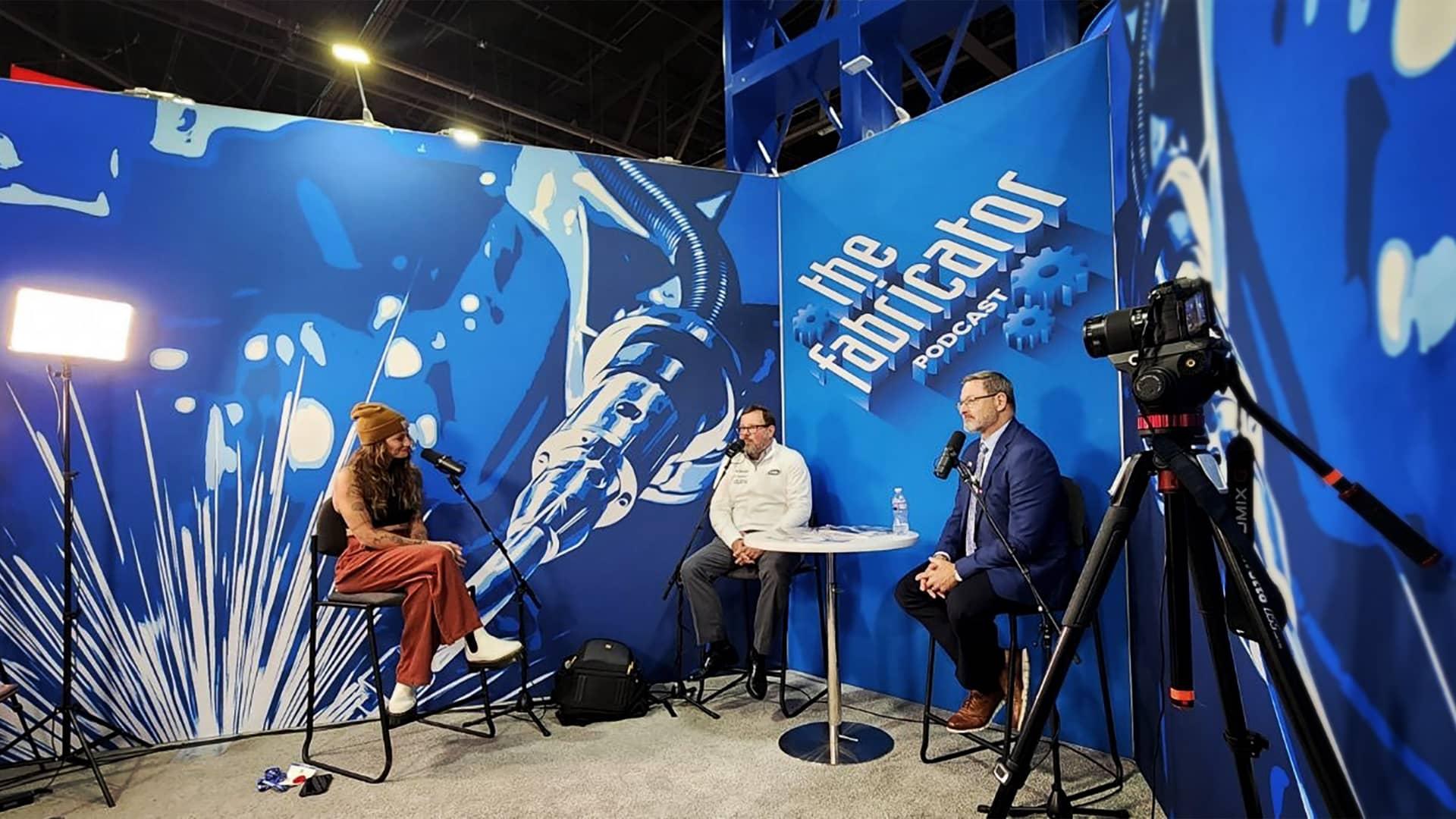
About This Podcast
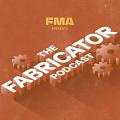
All Episodes
-
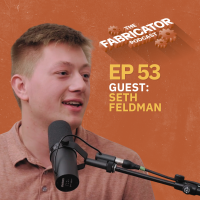 Ep. 053
Ep. 053 -
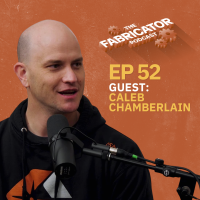 Ep. 052
Ep. 052 -
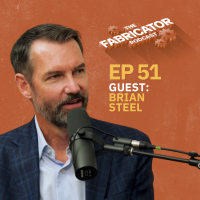 Ep. 051
Ep. 051 -
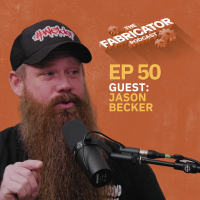 Ep. 050
Ep. 050 -
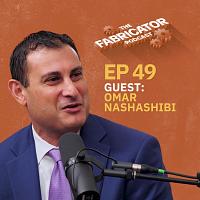 Ep. 049
Ep. 049 -
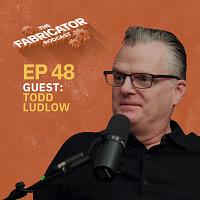 Ep. 048
Ep. 048 -
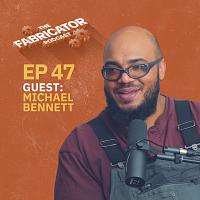 Ep. 047
Ep. 047 -
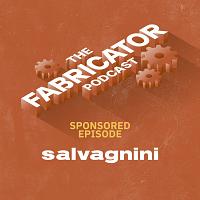 Bonus
Bonus -
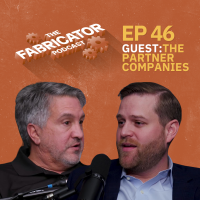 Ep. 046
Ep. 046 -
 Ep. 045
Ep. 045 -
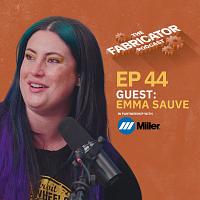 Ep. 044
Ep. 044 -
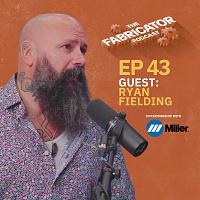 Ep. 043
Ep. 043 -
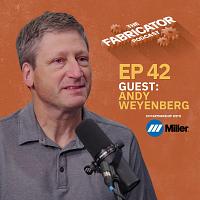 Ep. 042
Ep. 042 -
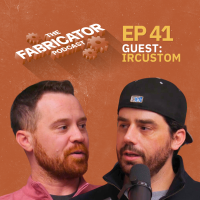 Ep. 041
Ep. 041 -
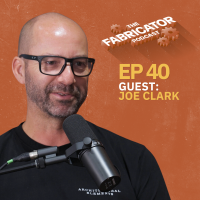 Ep. 040
Ep. 040 -
 Ep. 039
Ep. 039 -
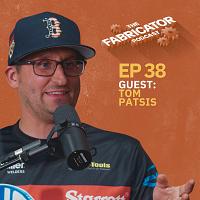 Ep. 038
Ep. 038 -
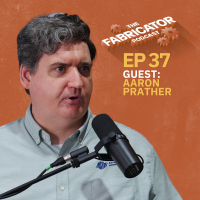 Ep. 037
Ep. 037 -
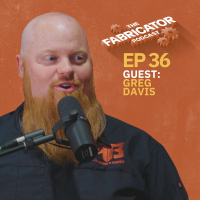 Ep. 036
Ep. 036 -
 Bonus
Bonus -
 Ep. 035
Ep. 035 -
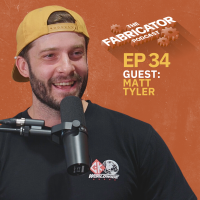 Ep. 034
Ep. 034 -
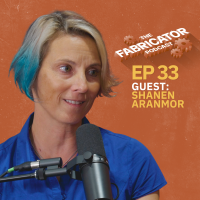 Ep. 033
Ep. 033 -
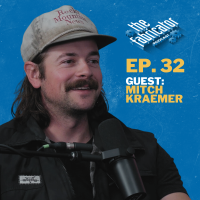 Ep. 032
Ep. 032 -
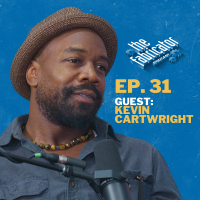 Ep. 031
Ep. 031
























